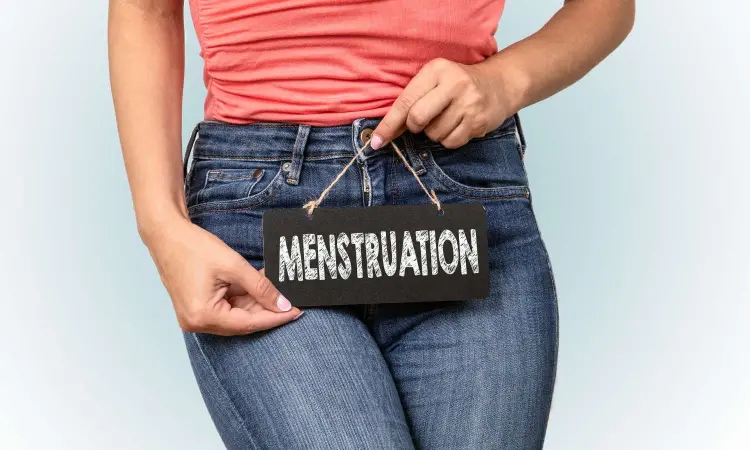- Home
- Medical news & Guidelines
- Anesthesiology
- Cardiology and CTVS
- Critical Care
- Dentistry
- Dermatology
- Diabetes and Endocrinology
- ENT
- Gastroenterology
- Medicine
- Nephrology
- Neurology
- Obstretics-Gynaecology
- Oncology
- Ophthalmology
- Orthopaedics
- Pediatrics-Neonatology
- Psychiatry
- Pulmonology
- Radiology
- Surgery
- Urology
- Laboratory Medicine
- Diet
- Nursing
- Paramedical
- Physiotherapy
- Health news
- Fact Check
- Bone Health Fact Check
- Brain Health Fact Check
- Cancer Related Fact Check
- Child Care Fact Check
- Dental and oral health fact check
- Diabetes and metabolic health fact check
- Diet and Nutrition Fact Check
- Eye and ENT Care Fact Check
- Fitness fact check
- Gut health fact check
- Heart health fact check
- Kidney health fact check
- Medical education fact check
- Men's health fact check
- Respiratory fact check
- Skin and hair care fact check
- Vaccine and Immunization fact check
- Women's health fact check
- AYUSH
- State News
- Andaman and Nicobar Islands
- Andhra Pradesh
- Arunachal Pradesh
- Assam
- Bihar
- Chandigarh
- Chattisgarh
- Dadra and Nagar Haveli
- Daman and Diu
- Delhi
- Goa
- Gujarat
- Haryana
- Himachal Pradesh
- Jammu & Kashmir
- Jharkhand
- Karnataka
- Kerala
- Ladakh
- Lakshadweep
- Madhya Pradesh
- Maharashtra
- Manipur
- Meghalaya
- Mizoram
- Nagaland
- Odisha
- Puducherry
- Punjab
- Rajasthan
- Sikkim
- Tamil Nadu
- Telangana
- Tripura
- Uttar Pradesh
- Uttrakhand
- West Bengal
- Medical Education
- Industry
Menstrual flow changes in women after COVID-19 vaccination is small and transient, researchers assure

USA: The researchers in a recent study noted a small increase in the probability of greater total bleeding quantity after the first COVID-29 vaccine dose; however, it was shown to resolve in the cycle after the post-vaccination cycle
The vaccination status did not impact the total number of heavy bleeding days. The findings from the international study, published in the British Journal of Obstetrics and Gynaecology, reassure the public that any changes are small and transient.
The findings indicate that women vaccinated for COVID-19 have a slightly higher risk for a heavier period after vaccination.
Oregon Health & Science University reproductive health services researcher Blair Darney, Ph.D., M.P.H., and physician-scientist Alison Edelman, M.D., M.P.H led the study. These findings build on prior work from the same research team that first identified an association between COVID-19 vaccines and menstrual cycle changes.
While a growing body of evidence demonstrates that COVID-19 vaccination is associated with a small increase in cycle length, other disturbances, such as bleeding quantity, are less known. This study aimed to estimate the effect of COVID-19 vaccination on menstrual bleeding quantity among individuals with normal menstrual cycles.
“Menstruation is a routine bodily function and a key indicator of overall health, so we must understand the scope of this issue among the global population,” said Edelman, one of the study’s lead authors. “The more we can understand about these reported changes, the more effectively we can counsel individuals about what to expect with a COVID-19 vaccine and how to make an informed decision about getting vaccinated.”
Researchers analyzed menstrual cycle data from the fertility tracking app Natural Cycles in a retrospective cohort study. The cohort included 9,555 individuals-7,401 vaccinated and 2,154 unvaccinated-primarily living in the United States, Canada, the United Kingdom and Europe. Participants reported daily bleeding quantity as “spotting,” “light,” “medium” or “heavy.” Researchers then examined the number of heavy bleeding days and total bleeding quantity.
Analyses showed a small-4%-increase in the percentage of participants who experienced greater total bleeding quantity following the first COVID-19 vaccine dose compared with an unvaccinated comparison group. This difference translates to an estimated 40 additional people per 1,000 normally cycling individuals who experienced more bleeding quantity. Researchers also found these changes typically resolved by the first post-vaccination menstrual cycle.
The research team emphasizes that these findings shouldn’t be a cause for concern but should validate the public’s experiences and provide reassurance that, if changes in flow occur with vaccination, they are likely to be small and temporary.
“Experiencing an unexpected change in your menstrual cycle can be alarming,” Darney said. “We hope this research can assure individuals that they are heard and their experiences around menstruation are valid. As was discovered in previous research, these changes at a population level are small, typically resolving in the cycle after vaccination, and shouldn’t be a source of anxiety or fear.”
Individuals who notice prolonged changes in menstruation are encouraged to seek guidance from their clinician.
While this study didn’t look at why these changes occur, researchers note several plausible ways a vaccine-prompted immune response could cause temporary menstrual changes. However, individuals naturally experience variations in menstrual cycle duration and bleeding patterns, making it challenging to isolate COVID-19 vaccination as a sole cause.
Looking forward, researchers hope to learn more about the biological mechanism of these changes. They will continue to leverage data from cycle-tracking apps to investigate other reported variations in menstruation following the vaccination, such as missed cycles, unexpected vaginal bleeding and pain.
Darney, Edelman and colleagues also will study the effect of COVID-19 disease on the menstrual cycle, suspecting that infection itself creates similar changes to those experienced after vaccination.
Reference:
Blair G. Darney, Emily R. Boniface, Agathe Van Lamsweerde, Leo Han, Kristen A. Matteson, Sharon Cameron, Victoria Male, Juan Acuna, Eleonora Benhar, Jack T. Pearson, Alison Edelman, First published: 10 April 2023 https://doi.org/10.1111/1471-0528.17471.
Dr Kamal Kant Kohli-MBBS, DTCD- a chest specialist with more than 30 years of practice and a flair for writing clinical articles, Dr Kamal Kant Kohli joined Medical Dialogues as a Chief Editor of Medical News. Besides writing articles, as an editor, he proofreads and verifies all the medical content published on Medical Dialogues including those coming from journals, studies,medical conferences,guidelines etc. Email: drkohli@medicaldialogues.in. Contact no. 011-43720751


